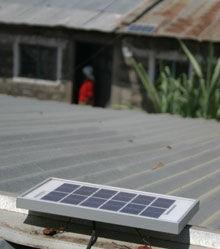
Some of the largest countries on Earth made it clear this week at the World Economic Forum in Davos, Switzerland that, in many cases, renewable energy is just a few years away from reaching grid parity with fossil fuels without subsidies. Worldwide investment in renewable energy totaled $187 billion in 2010, while investment in coal and natural gas was $157 billion. With government subsidies worldwide in jeopardy because of financial woes, the International Energy Agency says countries should hold on for just a few more years until renewables catch up to emissions-laden power companies — which could happen as early as 2015 — after which, it is anyone’s game.
 Follow
Follow
